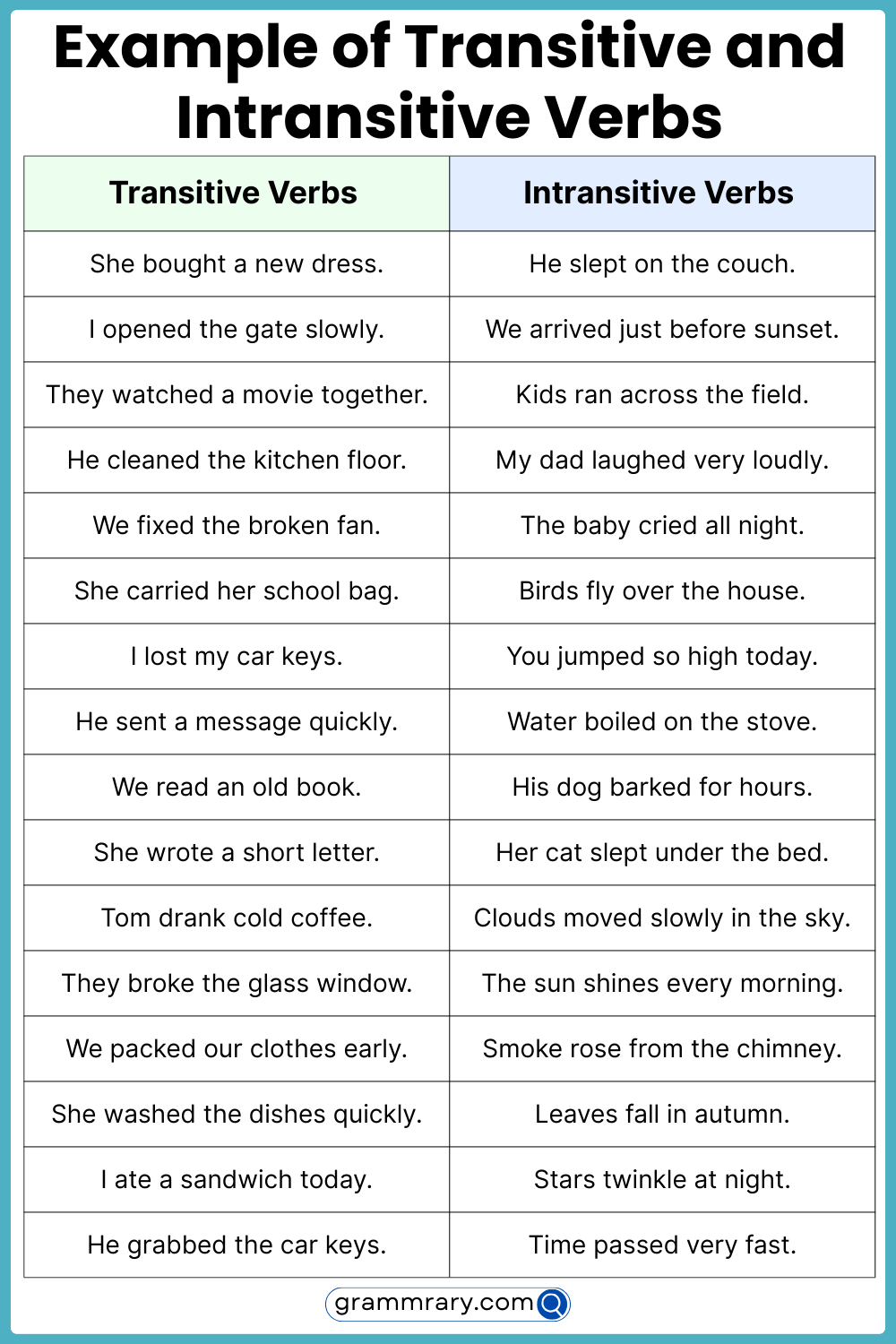Verbs are an essential part of the English language, as they convey action or state of being in a sentence. There are two main types of verbs: intransitive and transitive. Understanding the difference between these two types of verbs is crucial for constructing grammatically correct sentences.
Intransitive verbs are verbs that do not require a direct object to complete their meaning. They typically express an action that does not transfer to an object. Intransitive verbs stand alone in a sentence and do not require any additional information to make sense.
Intransitive Verb and Transitive Verb
On the other hand, transitive verbs are verbs that require a direct object to complete their meaning. They express an action that is done to someone or something. Transitive verbs always have a direct object, which is the recipient of the action in the sentence.
For example, in the sentence “She ate lunch,” the verb “ate” is transitive because it requires a direct object, which is “lunch.” Without the direct object, the sentence would be incomplete and lack clarity.
In contrast, in the sentence “He sleeps peacefully,” the verb “sleeps” is intransitive because it does not require a direct object. The action of sleeping is complete without needing to specify what or who is being slept.
It is important to note that some verbs can be both transitive and intransitive, depending on how they are used in a sentence. For example, the verb “run” can be transitive when used in the sentence “She runs a marathon,” but it can also be intransitive when used in the sentence “He runs every morning.”
Understanding the distinction between intransitive and transitive verbs is essential for constructing clear and grammatically correct sentences. By identifying whether a verb requires a direct object or not, you can ensure that your writing is coherent and easy to understand.
In conclusion, intransitive verbs do not require a direct object to complete their meaning, while transitive verbs do. By recognizing the difference between these two types of verbs, you can improve your language skills and communicate effectively in written and spoken English.
